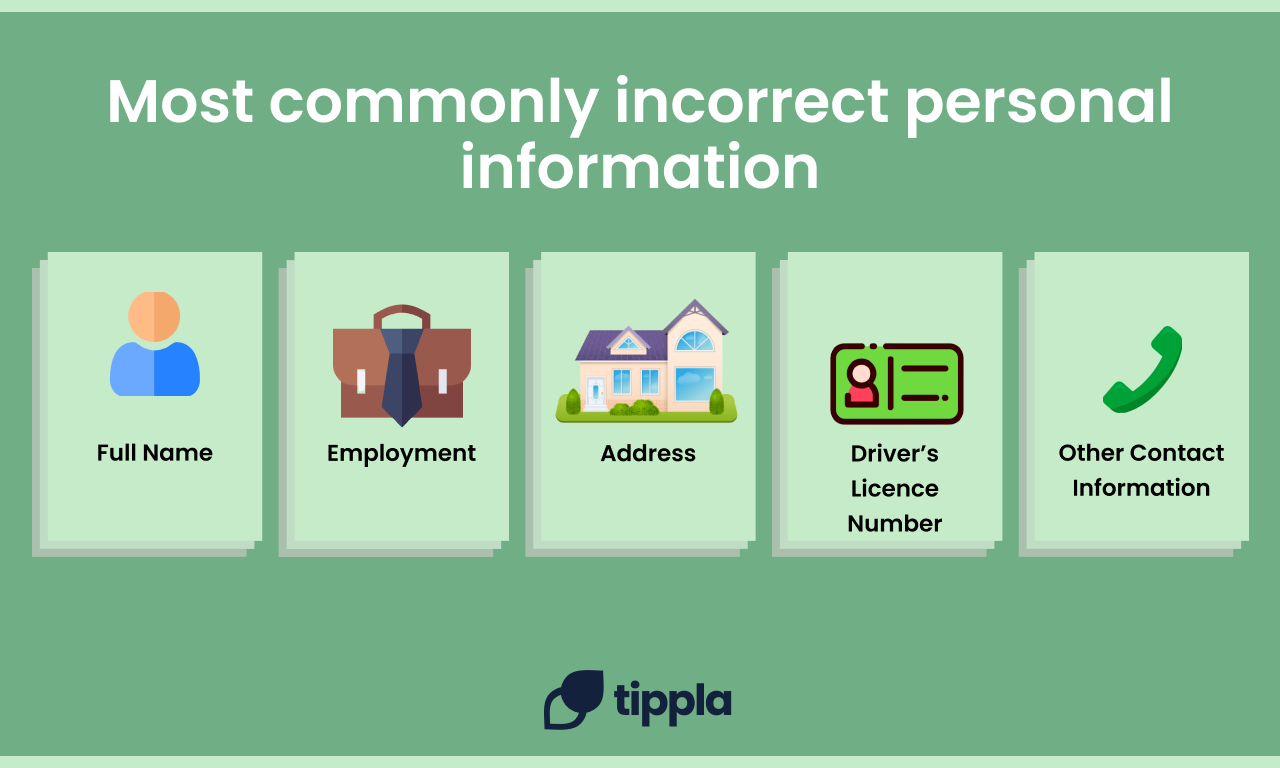Introduction
Your credit report contains a mixture of your personal and financial information. As we’ve highlighted through this online course – your financial information affects your credit score. But can your personal information also affect your credit score? The answer might surprise you!
Here’s what we’ll cover:
- What is personal information?
- What personal information appears on your credit report?
- Why does your personal information affect your credit score?
- What are the most common personal information mistakes and why?
- How to update your personal information on your credit reports.
What personal information is on your credit report?
When it comes to your credit report, here’s what personal information will appear on your report:
- Your full name;
- Current address or your last known address, as well as your previous two addresses;
- Your current or last known employer;
- Driver’s licence number.
Part IIIA of the Privacy Act 1988 (the Act) regulates consumer credit reporting in Australia. The Act aims to facilitate an efficient credit reporting system whilst at the same time, protecting the privacy of individuals.
What information will not feature on your credit report? Here’s a quick overview:
- Race/religion;
- Dependents;
- Salary;
- Superannuation;
- Savings;
- Assets (such as cars, houses and jewellery).
Why does your personal information affect your credit score?
Your personal information plays a larger role than many people realise. In fact, it is possible to be rejected for credit due to incorrect information on your credit report, even if you have a high credit score.
So why is personal information so important, and how can it affect your credit score? According to Chinelle Wardle, the Director of Wardle Consultancy Services Pty Ltd, which specialises in helping Australian consumers and/or their representatives to improve their credit scores themselves, having incorrect personal information on your credit report can lead to multiple credit reports being generated for one individual.
When you have multiple credit reports, none of them will have the full picture of your credit history. Therefore, you’ll likely have a lower credit score, as your credit report probably won’t contain accurate information with respect to your current and updated financial obligations.
In some cases, having incorrect personal information can result in you not having a credit report and score at all. If you don’t have a credit score, then it can be harder to be accepted for credit, and drastically reduce your finance options.
What to look out for
As we’ve highlighted earlier in this course, mistakes are common in your credit report. But what information is most likely to be incorrect? We’ve outlined the most common offenders below:

According to Wardle, there are two main reasons why your personal information might not be correct on your credit report – consumer error and credit provider error.
When you apply for credit, you will need to fill out your personal details on the application. Sometimes, people make mistakes on the application – they might spell their name wrong, or submit incorrect licence details, for example. This information is then passed onto the credit bureaus and might appear on their credit report.
Just like consumers can make mistakes, so can the creditors! They might input your details incorrectly, and then pass on the incorrect information to the credit bureaus without realising. This is sometimes known as a possible match or a cross-reference.
How to update your personal information on your credit reports
If you have outdated information on your credit report, or there is a mistake on your credit report, then it is a good idea to get it fixed as soon as possible. To do this, there are two main routes you can take.
You can either reach out to all three of the credit bureaus (Equifax, Experian and illion) directly to have your information updated or corrected. Alternatively, you can speak with your credit providers to make sure they have your correct personal information.
Going forward, if you move house, or you change employment, you can provide that updated information to your creditors.
